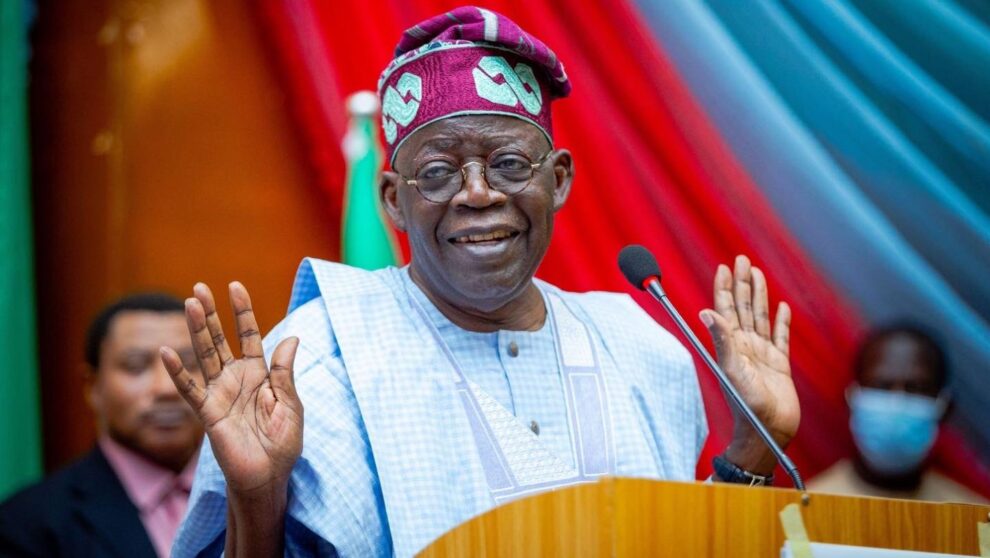Nigerians are divided in their responses to the reforms being embarked upon by the President Bola Ahmed Tinubu administration.
While some are watching to see what the reforms would amount to, some are neither here nor there in their understanding of what is happening, some are cynical about what is happening, and a few are optimistic that the administration is on the right track.
The administration has embarked on a number of reforms such as the petrol subsidy removal, floating of the Naira, unified foreign exchange (fx) market, among others since Tinubu assumed office on May 29, 2023.
This was in relation to his pre-election campaign promises, where he said he would “hit the ground running” if elected president.
And, true to his promise, the President has been steadfast with his campaign promises of reforming the economy to the point of asking Nigerians not to pity him, because he asked for the job.
“I have no reason to underperform as the elected president of the country because I campaigned for the job. I cannot complain about the job. I appreciate the gesture, and what you have told me this evening is very inspiring,” Tinubu said in a recent meeting with the business community in Abuja.
The President announced two major economic reforms in his inaugural speech with that historic statement – “oil subsidy is gone” and the unification of the naira’s multiple exchange rates. Over the years, petrol subsidy payment has strained Nigeria’s public accounts, with the several governments, before the current administration, paying huge sums of money for oil subsidies.
For many economists and analysts, removing oil subsidies should free up public resources for allocation to growth and economic recovery. However, like every other aspect of the Nigerian society; oil subsidy removal has failed to plug holes in government spending.
While the government has argued about increased revenue to the federal and the federating states since the May 29 announcement, Nigerians have had to struggle with the resultant effect of the high-cost-of-living, which raised petrol price by 200 percent, moving from about N198/litre to about N600/litre or more depending on the location.
According to some analysts, the reforms are needed to set the country on the path of growth and economic recovery; however, there are economic implications to the reforms, which the World Bank has warned could push seven million more Nigerians into poverty.
It is also believed that the recalculations based on the new rates will increase Nigeria’s external debt, import duties, increase transport cost, consumer goods costs and energy and electricity tariffs (which happened last week for consumers on the Band A category).
According to the Institute for Security Studies (ISS), reforms are not meant to plunge the citizens further into poverty or violate the rule of law. The ISS opined that while Tinubu’s reforms are a step forward in the economic trajectory of the country, there are however, deep structural issues to be addressed before Nigeria’s economy can deliver prosperity for Nigerians.
However, the president has promised to turn things around for the better in his recent meeting with business leaders during the breaking of fast at Iftar in Abuja Thursday last week. He further assured the business community that Nigeria’s economy was at a turning point and would require the steadfast support of the private sector for sustained growth and prosperity.
“There is no driver of the economy that is bigger than the private sector. If the private sector is not flourishing, there is no growth, no prosperity, no employment or development. No matter how flowery the speeches are, not even a mushroom will grow,” Tinubu said.
However, the circumstances under which he came to power seem to be having a pull-down effect on his various reforms. According to some Nigerians, it is believed that President Tinubu got to the presidency in a controversial manner; on the back of the fact that he got a paltry 8,794,726 votes in the 2023 presidential election in a country with over 200 million people.
And because of the limited level of support he got from the last general election, it is believed in some quarters that his reforms might not appear popular to the generality of Nigerians, especially those that did not vote for the ruling All Progressives Congress (APC) in the 2023 general election
It is also believed that what the people are waiting for is a big bang from the Tinubu administration; something that can woah the people to give the reform some chance of bringing about the renewed hope the president promised prior to the election.
Also, it is said that if the Naira can come down to N700 per dollar, or if the administration goes ahead to checkmate food inflation and food prices crash, Nigerians would begin to listen to him and might be excited by the reforms put in place to put the country back on the path of economic recovery.
However, the State House in a February 22, 2024, publication insisted that there was no going back on the reforms embarked upon by the Tinubu administration, and that the Federal Government remained steadfast in creating investment opportunities while tackling poverty.
“We are challenged, and we believe we will overcome the challenges. I have a can-do attitude that must be translated into a must-do attitude. We have a good team, and we must remain focused to get the goal accomplished,” Tinubu said while receiving a delegation from the Corporate Council on Africa (CCA) in Abuja.
The president further reaffirmed his commitment to creating an enabling environment for business to thrive, emphasising that his administration’s focus on investing in key sectors, such as agriculture, solid minerals, energy, health, physical infrastructure, trade promotion, financial services, digital enterprise, and the creative economy is underpinned by the need to ensure the welfare and prosperity of citizens.
“We are going to do more on security and investing in education, as we believe that education is the greatest weapon against poverty,” he assured the delegation and called for collaboration to strengthen the partnership between the government and professional membership organisation towards achieving shared goals.
However, some Public Relations (PR) professionals believe the administration might have to rebrand its communication message and public engagement with Nigerians to make them embrace the various reforms of the administration.
Accordingly, it is believed that more emphasis should be placed on amplifying the positive impact of the reforms on the lives of ordinary Nigerians. Also, it is said that the communication handlers of the administration should involve showcasing their success stories if any, using statistics to demonstrate improvement in key areas, and testimonials from beneficiaries.
“The government should adopt a transparent communication strategy, ensuring that citizens are informed about the reforms, their objectives, and the progress made so far,” Omotoyosi Ajayi, a Public Relations (PR) consultant, said. According to her, this could include regular updates through press releases, official statements, and town hall meetings.
Ajayi said that there was also a place for stakeholder engagement in making the people excited about the ongoing reforms. “The government should actively engage with various stakeholders, including civil society organisations, business leaders, community representatives, and opposition parties. Solicit feedback, address concerns, and involve them in the reform process to foster a sense of ownership and collaboration,” she said.
She also believes that this is the year to listen more to the people. Hence, the government should establish channels for continuous feedback and dialogue with the public.
“This could be through online platforms, public consultations, or dedicated hotlines where citizens can voice their opinions and suggestions,” Ajayi said.
Another PR professional however, said the timing of the reforms was not appropriate.
“People would expect that the factors that will make life easier after the increase of the fuel pump price and the free-market forces that will determine foreign exchange were not put in place immediately,” Irantiola Olutayo, Public Relations consultant, told BusinessDay SUNDAY.
According to him, it has got to a stage when people insinuate that all International Monetary Fund (IMF) policies are implemented hook, line and sinker without taking into consideration the peculiarities of Nigeria.
“As such, the agony in the land has dampened the heart of the masses. In PR, we endeavour to ensure that we are sensitive to our target audiences before deploying a programme,” he said.
He further said that Nigerians do not feel excited by the various reforms because the government is not walking the talk; hence, there is a disconnect between what the government is saying, and action being taken.
“The government is not walking the talk and people can identify it easily,” he said.
According to Olutayo, the appointments of the Tinubu administration are on the high side despite the government’s promise to implement the Oronsaye report.
“It is a sharp contrast. People want to see other things from within the government circles other than the reduction in the number of people that travel with government appointees,” the PR consultant said.
He suggested that the government should adopt a proactive, transparent, and inclusive approach to nation building, leveraging communications.
Olutayo said that the focus should be on highlighting achievements, engaging stakeholders, and addressing public concerns effectively.
According to him, by listening to the pulse of the people and demonstrating genuine responsiveness, the government can rebuild trust and garner support for President Tinubu’s reforms.
Speaking from a religious perspective to why Nigerians appear unexcited about the economic reforms of the Tinubu’s administration, Chidi Anthony, a Lagos-based cleric told BusinessDay SUNDAY that Nigerians should stop the blame game and focus on collective action to get the country out of the hoods.
He said that the economic hardship occasioned by the various reforms of government made the reforms unpopular with the masses. According to him, the president is trying but his best is not good enough when compared to the current hardship across the country. “The president needs to do more; but, he needs to watch people around him.”
According to him, Nigerians have lost hope in the country and that the president has not done enough to alleviate their sufferings. “What Nigerians expected is more than what we are seeing. Thank God gradually the Dollar is coming down; nobody believed the Dollar will come down to what it is today. A lot of people have said it is going to cross the N2000 mark.
“Most Nigerians are not happy based on the situation we found ourselves in today. But the truth remains that president Tinubu did a lot as governor of Lagos state. The problem is that someone might have good intentions but the people around him might be the problem,” Anthony said.
A Lagos-based media professional told BusinessDay SUNDAY that the president has failed on his campaign promises to the people. According to him, Tinubu who has been touted as a revenue generator guru has only brought more suffering through his aggressive ways of revenue generation that do not benefit the common man and low-salary earners.
“Even if the blind cannot see that President Bola Tinubu has failed to deliver his Renewed Hope campaign promises, at least, he will feel it and can even tell a man like Muhammadu Buhari that someone is really performing woefully than him and give him a medal,” Eniola Daniels, said on his official handle @ unlimitedeniola on X and Instagram.
Daniels also opined that the hike in tariff across different sectors of the economy makes it difficult for Nigerians to be excited with the administration’s reforms.
“Who benefits from the increase in Customs duty? I need to be convinced that Nigerians are happy with the increase in tariffs and hike in electricity charges. Tinubu has not impressed the common man, and those who voted for him, he has failed to lead by example with the way he wastes public funds on unnecessary globe-throating and having his children flock around him as if they are officials of the government,” Daniels said.
According to him, the president has also failed in the area of ensuring the security of lives and property.
He further said that the president’s reforms have been slow in bringing the needed economic revival, and has equally not done enough to encourage investors into believing that Nigeria is open for business nor boost their confidence about the country’s readiness for business.
Source: Business Day
















